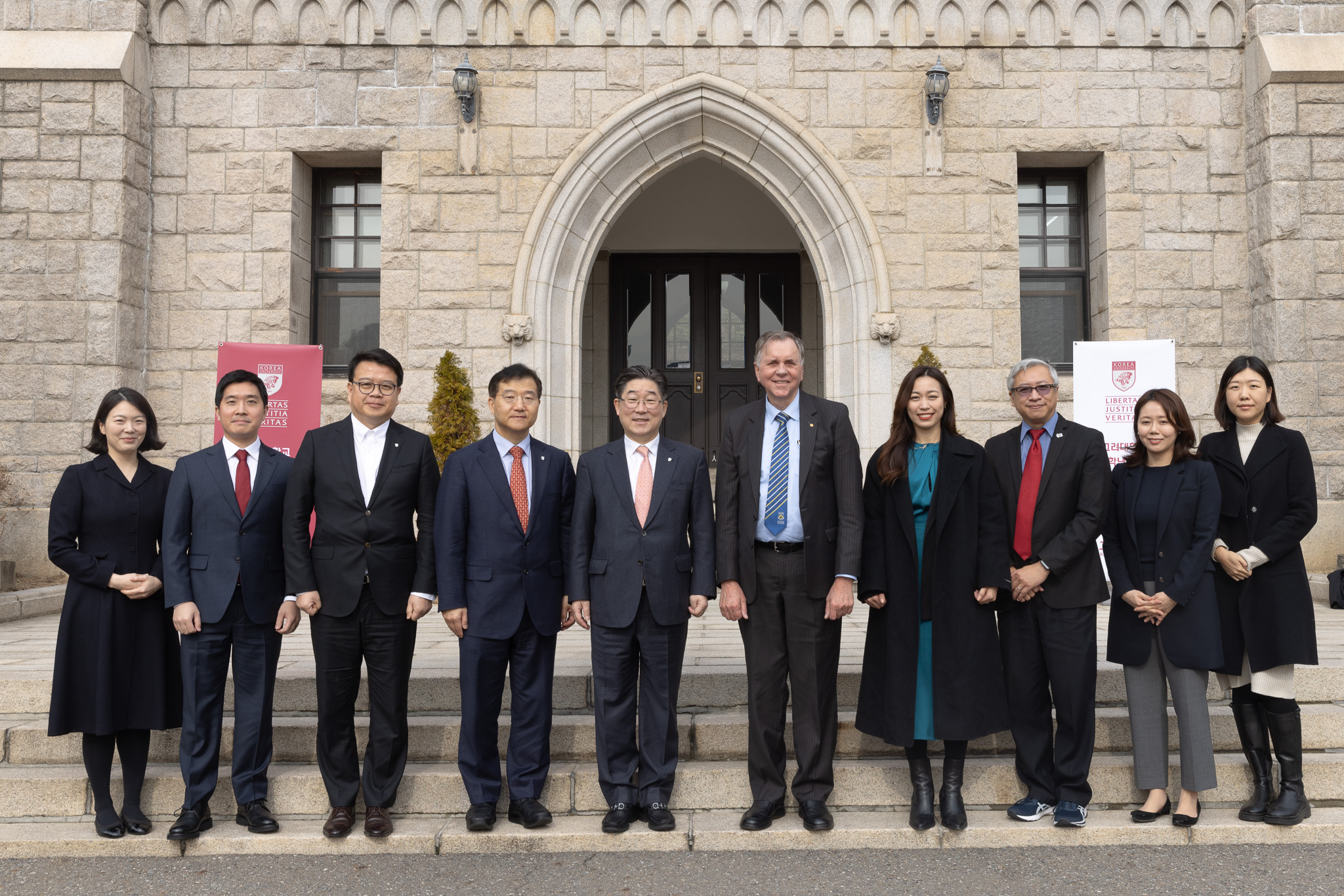Korea University (President Kim Dong-won) hosted the 5th Next Intelligence Forum (NIF) under the theme of "Innovation and Curiosity driving research" at 10:30 a.m. on February 28 (Wednesday) at Medi Hill Hall on the 5th floor of Korea University Anam Hospital.
The NIF is an academic event that invites Nobel Prize winners and social celebrities to give special lectures to mark the 120th anniversary of the opening of Korea University in 2025. The event is also an event to commemorate the renovation of the Korea University Medical School's First Medical Center. Dr. Barry Marshall will continue his in-depth Q&A session with students of Korea University along with the lecture.
Dr. Marshall received the 2005 Nobel Prize in Physiology or Medicine for discovering Helicobacter bacteria. He conducted research through self-observation by administering Helicobacter bacteria to his body, and his passion and curiosity in this discipline are still exemplary to many people. He has expanded his reputation by earning honors such as being a member of the Royal Society in 1998, the Order of Australia in 2007, and a foreign member of the National Academy of Sciences in 2008. He also received recognition from all over the world for his research contributions such as receiving the Chinese Friendship Award in 2015. He is familiar to Koreans as he participated directly as an advertising model for a product called Helicobacter Project Will.
Currently, Dr. Marshall is leading four advanced medical research centers, one in Australia and four in China. These centers are at the forefront of scientific advancement, prioritizing cutting-edge technologies such as genome analysis and next-generation sequencing, and focusing on innovative research on infectious diseases, advancement of diagnostic methodologies, and effective drug development.
Through these research institutes, Dr. Marshall is continuing his research with the aim of using cutting-edge technology to deepen understanding of infectious diseases, improve diagnostic approaches, and innovate treatment methods. His leadership and expertise are leading these institutions to the forefront of medical development, promoting collaboration, and pioneering breakthroughs in the field of dynamic infectious diseases.
In particular, various types of events will be promoted this year, including academic, research forums and seminars in the field to commemorate the 40th anniversary of the discovery of Helicobacter bacteria. This event will be jointly sponsored to strengthen the strategic research exchange partnership between the University of Western Australia and Korea University, to which Dr. Barry Marshall belongs.

